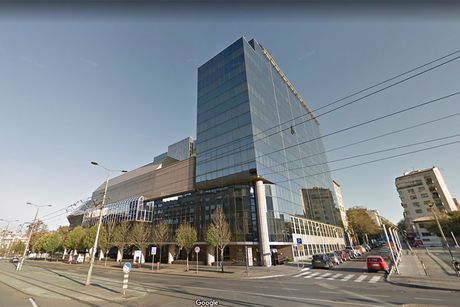Serbian National Bank raises key policy rate for the 9th time in a row

At its meeting today, the NBS Executive Board voted to raise the key policy rate by 50 bp, to 5%.
It raised by the same amount the rate on deposit facilities – to 4%, and the rate on lending facilities – to 6%, a statement from the central bank said.
The bank is tightening its monetary conditions
By making this decision, the NBS continues to tighten monetary conditions and contain the second-round effects of rising prices through inflation expectations, thus aiding inflation in Serbia to strike a downward trajectory and return within the target tolerance band until the end of the projection horizon, it added.
Today’s rate hike is the ninth in a row – since April 2022, it has been raised by total 400 bp. The spillover of the effects of past monetary policy tightening onto the rates in the markets of money, loans and savings suggests the efficiency of the transmission mechanism through the interest rate channel.
At the same time, the NBS helps contain the effects of the spillover of rising import prices onto domestic prices and contributes to macroeconomic stability amid heightened global uncertainty also by maintaining the relative stability of the dinar exchange rate against the euro.
The Executive Board stressed that Serbian economy still faces significant cost-push pressures from the international environment, though there are signs that they are easing. The persistently high geopolitical tensions and volatile movement of global energy and food prices in the past months under the influence of numerous factors on the supply and demand side warrant monetary policy caution by the NBS.
According to the flash estimate for November, inflation in the euro area, our key trade partner, fell for the first time in the last 17 months to the level of 10.0%, which is an outcome better than expected, owing to the slower growth in energy prices, while the growth in food prices and core inflation has still not decelerated. Euro area economic activity indicators are also better than expected, despite the sharp hikes in interest rates and mounting geopolitical uncertainty, with recession still expected in 2023.
According to the flash estimate for November, inflation in the euro area, our key trade partner, fell for the first time in the last 17 months to the level of 10.0%, which is an outcome better than expected, owing to the slower growth in energy prices, while the growth in food prices and core inflation has still not decelerated. Euro area economic activity indicators are also better than expected, despite the sharp hikes in interest rates and mounting geopolitical uncertainty, with recession still expected in 2023.
The continued monetary tightening by the ECB and the Fed is expected going forward, but it is estimated that the pace of rate hikes will slow, i.e. that the degree of their increase in individual meetings will be smaller than so far. The rising cost of living of households and companies’ expenses, alongside monetary tightening by leading central banks, will reflect on global economic activity and a gradual decline in global inflationary pressures next year.
Also, global supply halts are being eased, and the global primary commodity prices have declined, notably of energy, which should also help soothe inflationary pressures going forward. The price of natural gas in the European market, which fuelled most concern, has declined significantly since early September, while sufficient quantities of gas will contain its dramatic rise this winter which was initially expected.
Continued monetary tightening is necessary even in an environment of the prevailing influence of supply-side factors on inflation, so as to ensure that it does not get entrenched and broaden further. By deciding to gradually and moderately tighten monetary conditions at home, the NBS Executive Board had in mind that the movement of inflation in Serbia, which in October measured 15% y-o-y, is still mainly determined by global cost-push pressures.
Headline inflation will remain elevated until the end of this and early next year, but will thereafter strike a downward trajectory, only to decline more significantly in H2 2023, and return within the target tolerance band until the end of the projection horizon. Past monetary tightening, the anticipated waning of the effects of global factors that drove up the energy and food prices in the past period, and dented external demand amid a clouded global growth outlook will work towards the easing of inflationary pressures.

Real year-on-year GDP growth measured 1.0% in Q3, which is slightly lower than the SORS flash estimate (1.1%). Economic activity slowed primarily due to this year’s drought and a much weaker than assumed agricultural season, reduced external demand, and a continued rise in production costs, which reflects primarily on lower production in construction and manufacturing.
Due to low water levels, the activity in the energy sector continued down. Mining, however, recorded robust growth. The Board expects GDP to rise by 2–3% in real terms this and next year, and to accelerate to 3.5% in 2024, in parallel with the waning of the effects of factors behind lower external demand, and in light of the planned implementation of investment projects, primarily in infrastructure.
Depending on the global geopolitical situation and the movement of key monetary and macroeconomic factors from the domestic and international environment in the coming period, the NBS will assess whether it is necessary to continue to tighten monetary conditions and to what extent. The priority of monetary policy will still be to ensure price and financial stability in the medium run, while supporting further economic growth.
The next rate-setting meeting will be held on 12 January 2023.
(Telegraf Biznis)
Video: Pripadnici UKP uhapsili državljanina Crne Gore zbog falsifikovanih dokumenata
Telegraf.rs zadržava sva prava nad sadržajem. Za preuzimanje sadržaja pogledajte uputstva na stranici Uslovi korišćenja.

